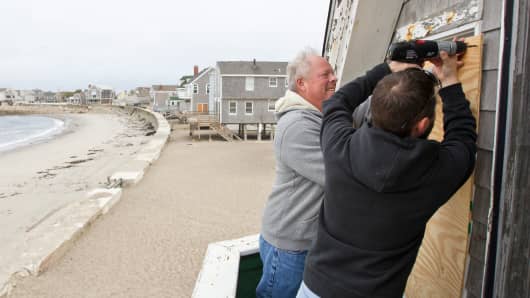It's been a while since a major hurricane has struck the Atlantic coast.
Danny—the first hurricane of the 2015 season—dissipated last week, and we haven't seen a hurricane of at least Category 3 make it to the U.S. mainland since 2005, when Hurricane Wilma hit Florida.
As large storms approach, we often start to see suggestions that companies like Home Depot and Lowe's will benefit. As people rush to buy home generators, sandbags and other supplies to prepare for the storm or repair afterward, investors look for a theoretical stock pop.
But you shouldn't expect to make any easy money by investing in home improvement companies. A recent report by data analytics firm Kensho suggests that a number of stocks—including Home Depot—do get a bump immediately after some hurricanes.
But does that hold over the long term for all hurricanes? The Big Crunch looked at Kensho's market data for every hurricane since 1992.



